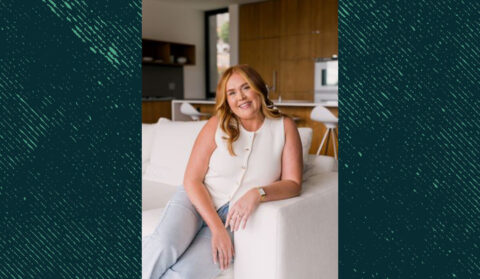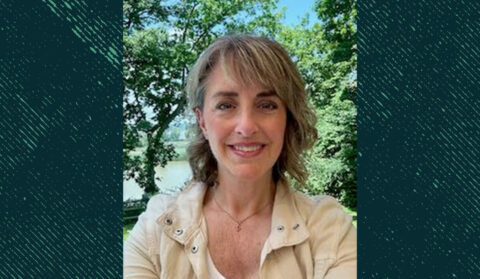MA in Counseling: Clinical Mental Health Counseling
Counsel others to cope with life’s challenges.
Counseling is a professional relationship that empowers diverse individuals, families, and groups to accomplish mental health, wellness, education, and career goals. We strive to give our adult learners the skills and knowledge needed to address the complexity of issues impacting the mental health of individuals and families. As a competency-based program, the curriculum represents the highest standards of professional ethics, theoretical integration, clinical skills, and multicultural and social justice counseling competencies. Students will learn to address the personal and environmental struggles of others while also accentuating their unique and inherent personal qualities for empowering change, creating fulfilling relationships and leading meaningful lives.
This degree is offered by Antioch University's Seattle Campus.
Program Overview
The MA in Counseling: Clinical Mental Health Counseling awards a Master of Arts degree in Counseling with optional specialties in Art and Drama Therapy. Accredited since 2012 by the Council for Accreditation of Counseling-Related Education Programs (CACREP), the curriculum meets the highest standards in counselor training and supervision with advanced competencies in multicultural counseling, evidence-based practices, and clinical competencies. At a total of 60 graduate credits and delivered in both classroom-based and hybrid formats, the CMHC program provides a structure and set of experiences to help students develop the intellectual and relational capacities needed to understand and work with others in the professional practice of counseling, empowering diverse individuals, families, and groups. These goals are accomplished through a combination of required coursework, electives, practical experience, and a supervised internship. The Clinical Mental Health Counseling program exceeds the educational requirements for state licensure in Mental Health Counseling (LMHC), and as an accredited program, meets national curriculum standards described by the Council for Accreditation of Counseling and Related Educational Program (CACREP). Students in Clinical Mental Health Counseling address the following knowledge areas in their graduate studies:
- Graduate-level understanding of fundamental theoretical models of human behavior within the counseling field;
- The ability to make use of research literature and other sources of relevant knowledge as an integral part of the ongoing responsible practice of counseling;
- Skills in building relationships ,including the development and deepening of self-awareness, empathy, ethical awareness, social responsibility, and respect for human diversity;
- Graduate-level mastery of counseling skills, including an ability to apply one's knowledge and relationship-building skills to the counseling situation, to think critically about human behavior and the counseling relationship, and to integrate theory with practice in ways that facilitate ethical and effective practice as a counselor; and
- Knowledge of professional development issues, professional organizations, and state requirements for practice as a clinical mental health counselor.
This program is offered in two deliveries, online with two-week-long intensive residencies and weekend low-residency (in Seattle, in Keene, NH, and our new site anticipated for Fall 2025 in Yellow Springs, OH). This page will provide information on the weekend delivery in Seattle. For more information about online delivery with residencies, please visit this page.
The weekend low-residency model has courses that are offered 75% face-to-face on weekends, with the remaining 25% online. Summer electives are offered online and shared with students in the online delivery. This program is designed to lead to state licensure.
2022 Recipient of the Robert Frank Outstanding Counselor Education and Supervision Program Award
Antioch University's MA in Counseling: Clinical Mental Health Counseling program is the recipient of the 2022 ACES Robert Frank Outstanding Counselor Education and Supervision Program Award. The Robert Frank Outstanding Counselor Education Program Award honors a counselor education program that exemplifies the importance of excellence through standards (which was the essence of Robert Frank’s career as a counselor educator) and innovation.
Additional Information
Licensure Information
This program is designed to lead to state licensure.
Additional Licensure Information
Accreditation
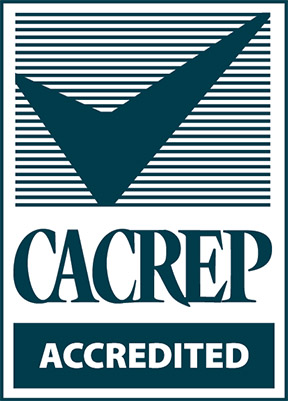
Antioch is accredited by the Higher Learning Commission. Our Clinical Mental Health Counseling specialization is accredited by the Council on Accreditation for Counseling and Related Educational Programs (CACREP). Our Art Therapy specializations are approved by the American Art Therapy Association (AATA). Our Drama Therapy specialization is accredited by the North American Drama Therapy Association (NADTA). Students enrolled in a CACREP program save between $5,000-8,000 on required supervision hours.
View our 2023 Counseling Department Annual Report
2023-2024 Annual Outcomes Report
Requirements:
The program promotes the development of professional identity by encouraging an active, continuous examination of one’s self in three areas – as an individual, as a professional counselor, and as a social justice advocate. The program is devoted to training students from diverse backgrounds, endorsing the principles of social justice by confronting oppression and injustice, and working with underserved populations. Students are prepared, as professional counselors, to work with individuals, groups, and social systems within a multicultural global community to promote mental health and well-being for all.
The program is 60 total semester credit hours. 14 core classes make up 42 of the credit hours, practicum and internship courses constitute 9 of those credit hours, and the remaining 9 credit hours are made up of elective courses.
A minimum of 100 hours of Practicum and 600 for Internship is required (if students live in states with licensure requirements that exceed 600 hours, the program can accommodate that need). For more information on specific course descriptions, credits per course, and general program requirements, please see the Academic Catalog.
This program can be completed in 3 - 3-1/2 years.
Internship Experience: All students participate in an internship in a professional setting. This experience will enable you to validate and clarify the theory you acquire in the classroom as you develop your own role as a clinician. Examples of internship sites include the following:
- Community mental health agencies
- Career and employment agencies
- Correctional facilities
- Family service agencies
- Gerontological settings
- HMO’s/PPO’s/EAP’s
- Military and Government agencies including the V.A.
- Pastoral/religious/spiritual agencies
- Rehabilitation agencies
- Addiction treatment centers
- Youth and Family Agencies
- Substance abuse settings
- Private practice settings
- College counseling centers
- Integrative Primary Behavioral Health Clinics
- Group homes
- Homeless shelters
- In-patient psychiatric hospitals
The Clinical Mental Health Counseling program graduates roughly 32 students per academic year, and based on recent alumni data, 87% of graduates will obtain counseling-related employment within 6 months. A brief Alumni Snapshot is below:
- 91% licensed as mental health counselors
- 79% completed postmaster requirements in less than 2 years.
- 60% work in nonprofit organizations
- 84% report job satisfaction
- 73% have salaries between $44-74,000
Graduates of the Master of Arts in Counseling degree program explore many professional options upon graduation. They seek positions in community agencies, hospitals, mental health clinics, and private practices, as well as teaching at community colleges or engaged in consulting and research. If you choose to continue your education, the MA program provides a solid foundation for entering a doctoral program or obtaining post-master’s credentials in an area of professional interest, such as Counselor education and supervision, play therapy, substance abuse counseling, or other clinical specialties.
- Ethical Practice: Students will demonstrate principles and standards of professional ethics in counseling and ethical decision-making informed by social justice.
- Social and Cultural Diversity: Identify strategies needed to address institutional and social barriers that impede access, equity, well-being, and success for clients.
- Human Growth and Development: Students will demonstrate knowledge of lifespan development and the capacity to integrate knowledge of developmental theory into practice.
- Career Development: Identify career development strategies that incorporate a focus on social justice and advocacy.
- Counseling and Helping Relationships: Demonstrate an understanding of theories of counseling and development of case conceptualizations and treatment plans that are underpinned by social justice
- Group Counseling and Group Work: Integrate into their practice the awareness of the influence of social and cultural contexts on groups
- Assessment and Testing: Students will demonstrate a broad understanding of different types of assessments, the selection and use of assessment tools, client assessment and diagnosis, trauma assessment, and the assessment of self-inflicted harm and danger to others.
- Research and Program Evaluation: Demonstrate and apply their professional identity as a clinical mental health counselor through an individual philosophy of practice grounded in critical analysis research and interpretation.
- Clinical Mental Health Counseling Specialty Area: Clinical Mental Health Counseling students will demonstrate an understanding of foundational knowledge, demonstration of competence in clinical mental health practice, knowledge of social justice issues, and a focus on wellness.
- Professional Dispositions: From admission through exit, students will demonstrate the attitudes, characteristics, and behaviors defined by the program as characteristics of exemplary counseling professionals.
Faculty Spotlights

Michael Buchert, MPS
Teaching Faculty
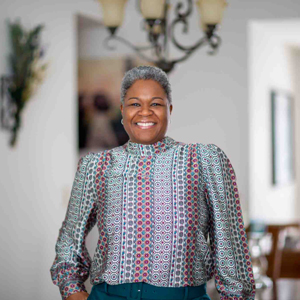
Erica Wade, PhD
Core Faculty
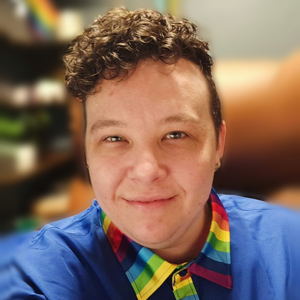
Kalen Zeiger, PhD
Core Faculty
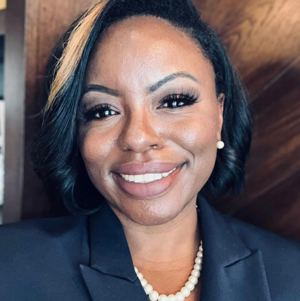
Ashley Baines, PhD, LPC, CSC
Teaching Faculty
Admissions
How to apply
- Completed the online admissions application.
- A Bachelor’s degree from a regionally accredited institution is required. Submit official transcripts from ALL colleges/universities you have attended to the Admissions Office. Transcript evaluations are required for all coursework completed outside of the U.S. or Canada (except Quebec). See Transcript Evaluation section on International Students webpage for details.
- OPTIONAL: Two letters of recommendation from people who are in a position to evaluate your professional (e.g., supervisor, colleague) or academic (e.g., faculty) work. The person making the recommendation may not be related to you.Recommendations from peer co-workers, friends, relatives, or personal therapists are not acceptable and will not be reviewed.
- Resume
- Admission Essay Submit a typewritten, double-spaced, one to two-page (between 250 and 500 words) response for each question and clearly number your response for each question. Essay questions:
- We are curious about your previous experiences (e.g., personal, professional, and academic) and would like to know how these experiences have led you toward the choice to apply to the Clinical Mental Health Counseling Program at Antioch University. Please describe a few of those fundamental experiences.
- The Clinical Mental Health Counseling Program is both academically and emotionally rigorous. What challenges, if any, do you foresee encountering during your studies? What forms of support will you use to meet those challenges?
- Antioch University and the Clinical Mental Health Counseling Program are committed to preparing professional counselors to be culturally competent and become advocates for social, economic, environmental, and racial justice. How does social justice and becoming culturally competent align with your interest in becoming a professional counselor?
- What are your professional goals in relation to the Clinical Mental Health Counseling Program, and how will this program specifically help you to reach those goals?
- Select applicants may be invited to participate in a group interview with faculty.
- Optional: If you do not feel as if your academic transcript(s) reflect your current ability to be successful as a graduate student, please be sure to highlight a plan for being successful in this program.
All admission application supporting materials, transcripts, essays, etcetera, should be emailed to [email protected] or mailed to the: Admissions Office Antioch University Seattle 2400 3rd Avenue, Suite 200 Seattle, WA 98121
Application Deadlines
| Quarter | Deadline |
|---|---|
| Fall | July 1 |
| * Complete applications received after the Deadline date may be considered if space is still available in that quarter or will be reviewed for the next available term. | |
| Please review the Academic Calendar for additional details. | |
Cost
| Department/Program Name | Tuition Cost per Credit | Total Program Credits |
|---|---|---|
| CLINICAL MENTAL HEALTH COUNSELING | ||
| Degrees: | ||
| Clinical Mental Health Counseling, MA *with careful course selection a certificate in Trauma Counseling OR Addictions counseling is possible within the CMHC degree requirements | $944 | 60 |
| Clinical Mental Health Counseling, MA (Online) *with careful course selection a certificate in Trauma Counseling OR Addictions counseling is possible within the CMHC degree requirements | $840 | 60 |
| Art Therapy and Clinical Mental Health Counseling, MA (online) | $840 | 66 |
| Certificates (if pursued as an independent credential): | ||
| Certificate in Clinical Mental Health Counseling, Addictions Counseling | $600 | 12 |
| Certificate in Clinical Mental Health Counseling, Trauma Counseling | $600 | 9 |
| Clinical Mental Health Counseling, Post-Master’s Respecialization Certificate | $840 | Variable (9-15) |
| MA in School Counseling | $840 | 60 |
| Certificate in School Counseling | $840 | 18 |
| Art Therapy Residency | ||
| View the Cost of Attendance Components | ||
Financial Aid
Financial Aid is also available to most students. LEARN MORE
Transfer Credit Information
It is possible to transfer up to 15 quarter credits of prior relevant graduate-level coursework. Coursework must have a 75% overlap in course content in order for credits to transfer.

Start your Antioch Journey
Take your next step - talk to our admissions team to find the right program for you.

